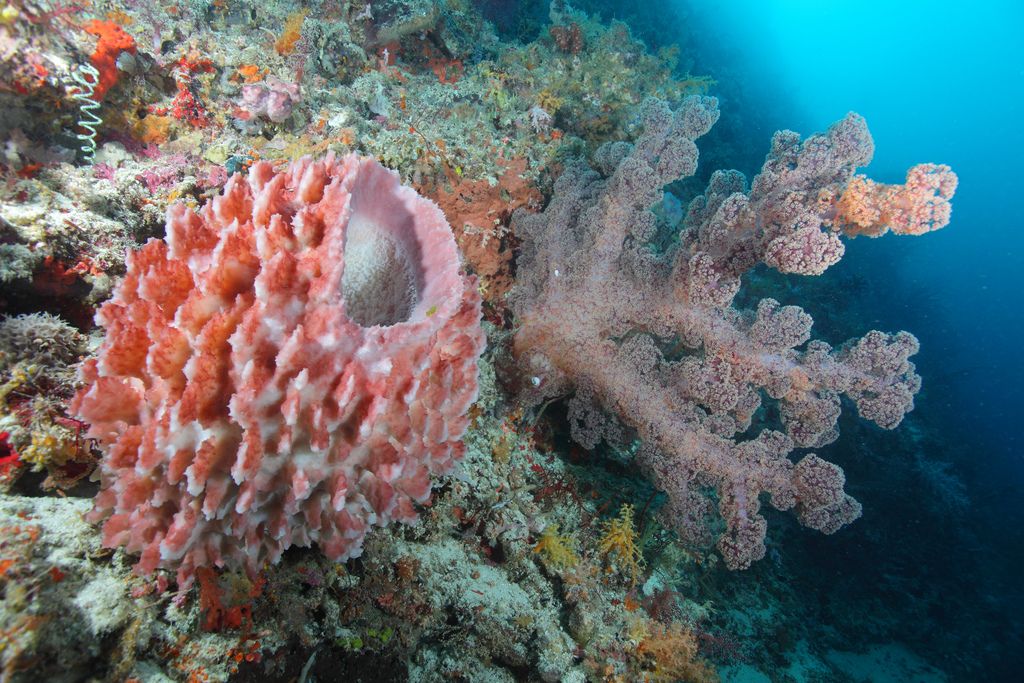
We have ancestors who are humans, we have ancestors who were small, furry mammals and we have ancestors who were fish. But if you went back 750 million years, to the first ancestor of all animals, you'd find the simple sponge at the bottom of our evolutionary tree.
For years, scientists have debated what type of animal was the ancestor of the phylogenetic kingdom Animalia. Many have suggested that animals similar to comb jellies, which have complex systems like guts and nervous systems, might be at the base of the animal tree. But other scientists have contended in heated debates that sponges are the great-grand-daddy of humans.
Now, researchers using genetic models have determined that an animal similar to modern sponges is almost certain to have been the first animal from which all other groups of animals evolved. The research was published in the journal Current Biology .
"Sponges are what we call a sister group," Davide Pisani, professor of phylogenomics at U.K.'s Bristol University, told Newsweek. "They are the most distant cousin we have in the animal family tree."
Some 750 million years ago, the last common spongey ancestor of all animals diverged, Pisani explained. One lineage became modern sponges, and one gave rise to all other animals.
Pisani and his team used data modeling to determine whether sponges or comb jellies were more likely to have been our ancestors. He explained that by comparing artificial models of sponges and artificial models of comb jellies, he was able to determine which models created data that is most similar to the data that we have today. However, these models aren't perfect. "All models are wrong, but some models are useful," he noted.
Pisani says that scientists aren't sure exactly what our distant ancestor looked like, but it was probably a bit simpler than modern sponges, or even blob-like. But they understand that the ancient organism was a filter-feeder, without complex organs.
This helps to answer some philosophical questions about the origins of animal life and the kinship we share with other animals. It also helps us understand how early ecosystems may have evolved, with sponges and other filter-feeders oxygenating early oceans.
"I found it pretty exciting to find that something as simple as a sponge might have kick-started modern ecosystems, so that's impressive," Pisani said.
Uncommon Knowledge
Newsweek is committed to challenging conventional wisdom and finding connections in the search for common ground.
Newsweek is committed to challenging conventional wisdom and finding connections in the search for common ground.
About the writer
Kristin is a science journalist in New York who has lived in DC, Boston, LA, and the SF Bay Area. ... Read more
To read how Newsweek uses AI as a newsroom tool, Click here.








